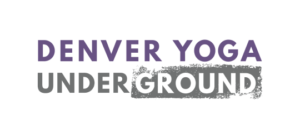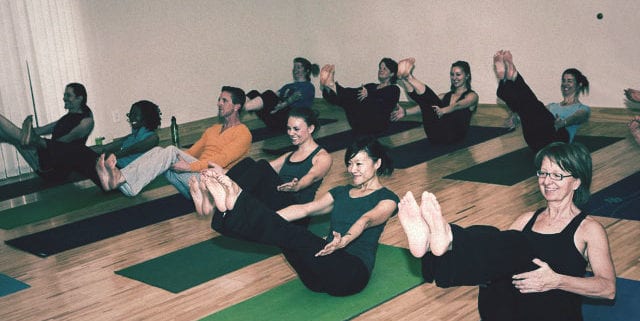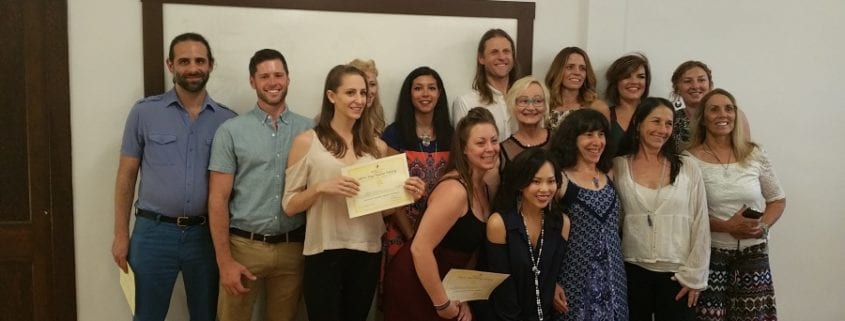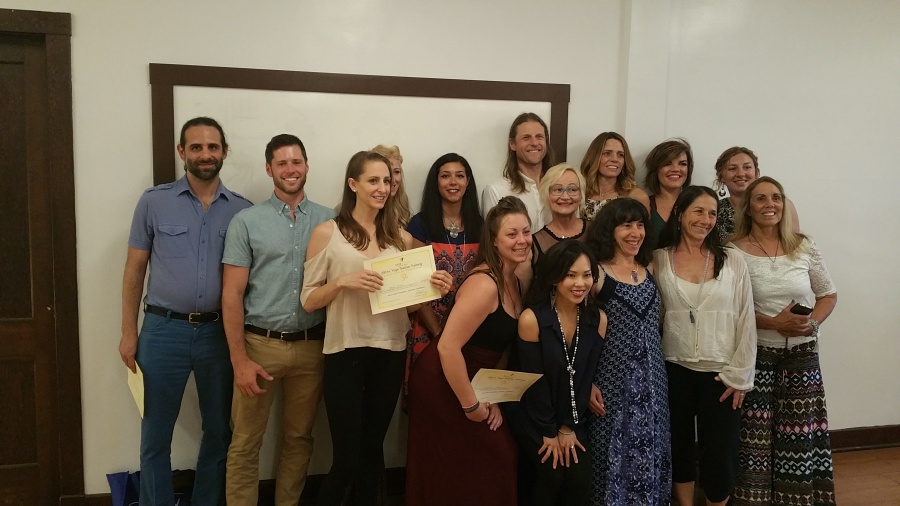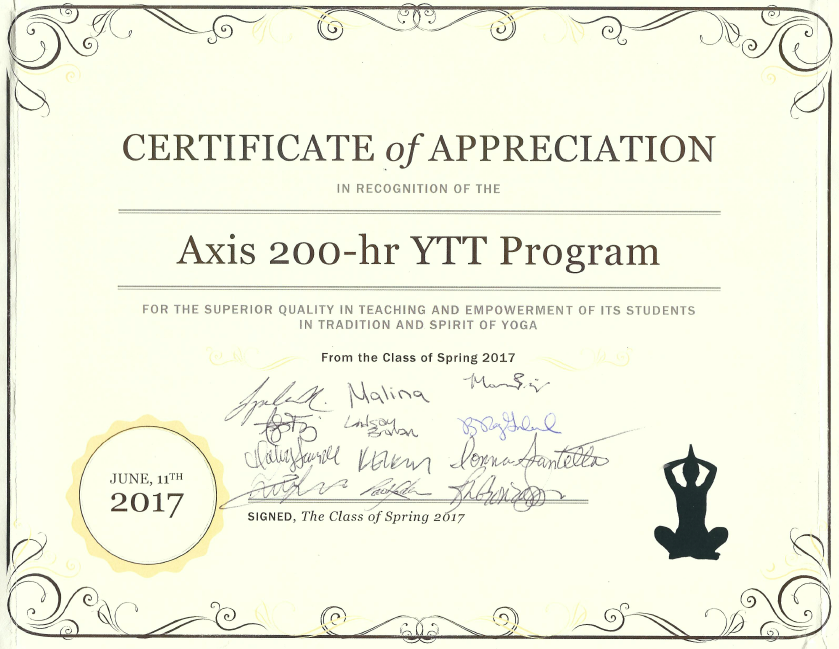The Top Must-Ask Questions Before Choosing a YTT
Some have called Colorado the mecca of yoga. And as the popularity of both yoga and Colorado as THE place to live have grown, the number of certified yoga teacher training programs have skyrocketed. A quick internet search will turn up dozens of training programs throughout the Denver-Metro area. But it can be challenging to determine which yoga teacher training program is right for you.
Below is a list of 10 must-ask questions you can use to evaluate the programs you are considering. The answers will not only narrow down your search, but will also help guide you to the training program that meets your specific needs as a yoga practitioner and future yoga teacher if you choose to go that route. A representative from the Denver program that you are considering should be available via email, phone or even face-to-face through open house events. If you are having difficulty getting your questions answered, this could be a sign that the program may not be a good fit.
Download and print the comparison worksheet here to help make narrowing down your selection easier.
With the answers to these questions, you can find the Denver yoga teacher training program that best aligns with your values. Remember that the benefits of your training will feed you well for the rest of your life, far beyond the length of the program. I’m excited for you and the amazing journey you are about to embark upon.
Namaste,
Derik Eselius
Founder, Axis Yoga Training
Denver, CO
10 MUST-ASK Questions Before You Pick A Program in Denver
- What is the size of the training class? Ask what the capacity is for their typical training class and if they fill that class to capacity. Take a moment to consider how you would feel being in a class of 20 versus a class of 60+. Ask to talk with the primary teacher about the level of individual or personalized feedback they will provide on your practice, teaching, sequencing, and other assignments. Smaller classes allow for more customized instruction. The way you are received as a prospective student will reveal how you will be treated once in the class. If the teacher makes time to address your questions, that’s a good indication they will value you as an individual rather than simply someone on their class roster.
- Is the program certified? Ask if the program is certified specifically with Yoga Alliance. Yoga Alliance has become the authority in the yoga world and most all legitimate yoga teacher training programs are registered with them. In all honesty, it may be tricky to find teaching job after graduation if you haven’t attended a Registered Yoga School (RYS) and obtain the Registered Yoga Teacher (RYT) designation, all affiliated with Yoga Alliance. As a member of Yoga Alliance, you have the opportunity to receive valuable member benefits and resources such as health insurance, liability insurance, educational webinars, and more. Even if you are not sure you want to teach, it’s better to enroll in a program that will allow you to so if you choose. To ensure you can get your RYT designation upon graduation, verify that a prospective program is listed as an RYS on Yoga Alliance’s website.
- Does the program offer on-going support after graduation? This is important (though all of these questions are important)! Attending an intense 3-month yoga teacher training really can and will change your outlook on life in addition to giving you the skills to go on , if you desire, to teach your own classes. If after training, you’re kicked out of the nest without on-going support available, or access to the teachers you could end up stuck or wondering what to do next. Before you sign up for the training, make sure you ask, after the training, can I email my teacher questions that arise about my own personal practice and about how to go about starting to teach. Are there additional “booster” or “refresher” classes or even retreats for graduates that I have the opportunity to attend? Is there an online “alumni” community that I can be part of?
- What is the style of the training? Knowing what style(s) of yoga will be taught will help you narrow down your search. While demonstrating respect for the broad tradition of yoga, the program should focus on one or two particular approaches that resonates with you rather than providing a sampling of every possible yoga style. Keep in mind the notion that being a jack of all trades means becoming a master of none. On the other hand, consider whether the program’s teaching certificate will make you a well-rounded instructor who can teach in a variety of settings, or whether you will only be qualified to teach a branded, scripted class in a particular location or for a particular company. Yoga is diverse in how you approach it. Some programs may focus on the Asana more exclusively than others. Determine what is best for you.
- How long has the program been established? With so many yoga teacher training programs popping up in every city (Denver is flooded with them), it’s important to know how long the program has been in existence and even approximately how many graduates the program has produced since it’s inception. The longer the program has been around, the more likely it is that they have grown, learned and matured over the years to produce the highest quality curriculum. Like with any course or curriculum, it takes some trial and error to work out the kinks. It also takes time to respond to the needs and feedback of the students they are serving. In addition to asking how many graduates have completed the program, a follow up question would be if they survey their graduates and take action steps to apply that feedback to make the program better.
- What is the culture of the program like? Understanding the culture of the yoga studio will help you get an understanding if you and the program are a good fit. Just like finding a new job or attending a university, cultural fit plays a role in your decision. Is the yoga teacher training program a large part of the focus of the studio offering it, or is it something they do on the side as an added stream of income? Is the program offered by a large national chain or a smaller company local to Colorado? Is their culture more community-based or corporate focused? More importantly, ask yourself will you feel more comfortable in a close-knit group or in a large, sprawling network.
- What does the curriculum consist of? We already asked about the styles of yoga taught, but it’s also good to know the various elements that make up the program’s curriculum. Are a variety of benefits of yoga discussed (physical, mental and spiritual)? Is the program holistic and comprehensive? Will you be learning a combination of traditional theory, meditation, Pranayama (breathing) and Asana (postures)? Is there a list of required reading? Will there be guest speakers? Is there just one teacher or multiple? Having a well-rounded program that uses a multi-faceted approach to teaching brings depth to your training and practice as both a yogi and teacher.
- What prior experience is required before the training? As a person interested in becoming a certified yoga instructor, you may come from a variety of levels in your own yoga practice. From being hooked after only taking a handful of classes, but wanting to learn all there is to know about yoga and its benefits. To having practiced for many years and wanting to deepen that practice and take it to the next level. A big part of knowing if a specific program is right for you is understanding if they have any requirements or prerequisites. If a program requires no previous yoga experience for applicants, this may raise a red flag. It could mean that you will receive a less-thorough education because your teacher trainers will need to spend more time instructing newer students in the basics of alignment and technique. Getting a clear idea on the program’s expectations of you before signing up can either set you up for great success or failure.
- Is the school fair and upfront with their pricing? Price is often one of the biggest variables when searching for the right yoga teacher training program. However, if the answers to the previous questions aren’t right for you then price really doesn’t matter. Choose quality over affordability. Most 200-hour teacher training programs range anywhere from around $2,000 – $5,000. Some schools have additional costs for workshops, makeup classes, manuals or even guest speakers. Find out all fees that are associated with completing the program so you know what your true cost will be, and be sure the program has their attendance, pricing, and refund policies in writing.
- What do graduates say? Word of mouth and referrals are a very powerful thing. What better way to know what a program is all about than hearing it from those that have experienced it themselves? Read the testimonials on the program’s website, research reviews on Yelp and even go as far to see if you can reach out to a recent graduate to hear their experience first hand and point-of-view. If you have the opportunity, ask a former trainee what their personal transformation was like and what they decided to go on and do after graduation.
200 Hr. YTT Open House – Aug. 13
Come find out more about Axis Yoga’s ongoing yoga teacher trainings. This will be a great opportunity to experience a class, meet graduates, get your questions answered and get a taste of what Axis is all about!
Sunday, Aug. 13, 2017 9:30-11am
Sixth Ave. UCC – Upstairs
3250 E. 6th Ave, Denver – 80206
